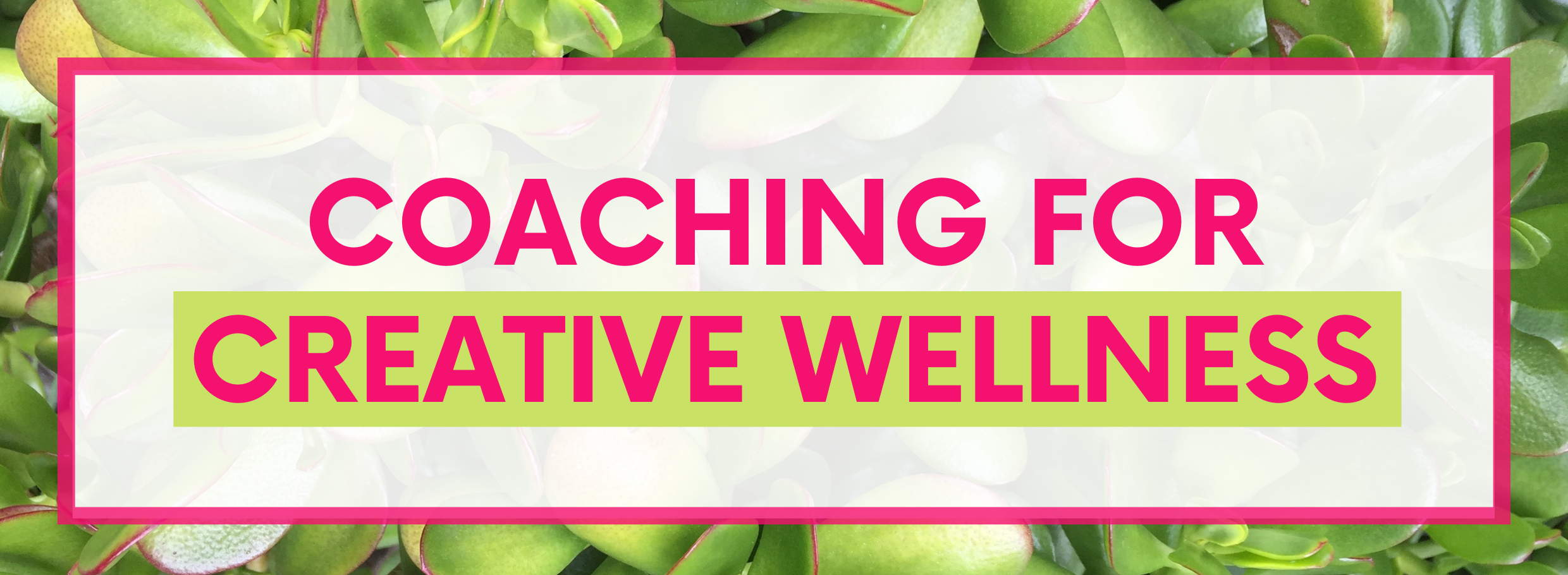4 More Compassionate Mindset Shifts Around Productivity
Last week I covered 4 limiting beliefs around productivity that many people encounter, and how you can reframe each of them as a new mantra to guide your mindset.
Go back here to read the first 4, and to hear more about why we might need to shift our mindsets about productivity, even those of us with a “healthy” relationship with it.
It can be really tricky to balance the necessity of having the flexibility to honor our physical and emotional needs with the structure that helps us be productive and get things done, and self-compassion is the thing that underlies all of it!
That’s exactly why I’ve been exploring and sharing about the idea of compassionate productivity: working in the way that’s most effective for you personally, takes your energy cycles into account, and also prioritizes feeling your best. (Yes, feeling good and being productive can coexist!)
Here are 4 more mantras that will help you compassionately reframe negative thoughts about productivity:
NEGATIVE BELIEF 5:
I have to be productive in order to deserve to feel good.
REFRAME / MANTRA:
I deserve to feel good, regardless of how much I get done, and feeling good will actually help me get more done!
We don’t usually say this one to ourselves exactly like this, but it’s often the underlying belief when we defer gratification to an unreasonable degree (I can’t do X until I get Y done). This is especially unhelpful when Y is a really big thing that takes longer than planned, and X would really help you feel good and be more productive while doing Y.
Like in belief 2 from last week, this one is rooted in equating our work with our entire worth, instead of just a part of it.
You might also use this belief to relegate rest to being a reward for work accomplished, which is not if the expectations of that work exceed your capacity for doing it. Just to be clear, I’m not against rewarding yourself for getting something done - that can be a great motivator!
The difference between these two situations is in how you treat yourself: in the first example, you’re being your own harsh, restrictive taskmaster, which could feel punishing, as opposed to rewarding yourself in a positive and compassionate way. It’s all in how we frame it!
NEGATIVE BELIEF 6:
I have to perfectly manage my time and environment in order to feel and be productive.
REFRAME / MANTRA:
I will make the most of whatever situation so that I can still move forward, even if I don’t feel at my best.
You don’t have to perfectly manage your time in order to get things done. Spoiler: there is no such thing as an ideal situation! Maybe you don’t need ideal conditions to get a lot done?
I’m all for creating the best environment to support your work, but if this leads to discouragement about not having the conditions you want or making excuses about why you can’t do the work, then it can dissuade you from even starting.
Limitations can feel, well, limiting, but they can also help hone our focus - I know lots of parents who learn how to be insanely focused and productive during the little time they have available, when kids are sleeping or occupied.
Here are a few ways you can improve your productivity in non-ideal conditions:
Do things slower than planned, by releasing the need to mentally rush.
Do activities in smaller chunks of time. Things still get done, because small bits of time add up, as long as you keep showing up!
Take more frequent breaks to pause and ask yourself what you need, then give it to yourself, which can be easier than you think.
When you’re doing creative or big-picture-thinking kind of work, ask: How can I allow or invite ideas to come to me, instead of trying to force them or pin them down?
Speaking of showing up, try showing up to create even if you don’t feel you have the brain for it at that moment. Especially after a quick walk, big glass of water, or a snack (3 basic needs that often get ignored), you might be surprised at how much more mental clarity you might suddenly gain!
Shift the focused/intense/creative work, to another day and swap in a lower-brainpower activity that also needs to get done instead (like email, bookkeeping, admin, etc.)
NEGATIVE BELIEF 7:
My future success depends on me working constantly.
REFRAME / MANTRA:
My future success depends on my ability to pace myself, take care of myself, and work efficiently.
When you’ve been steeped in “hustle culture”, as most of us have, it’s easy to believe, that working constantly is the way to “get ahead”. Motivated by perceived scarcity, you might fear losing opportunities (which might also come with some comparison-itis baked in), and a common subconscious way to deal with that is to control the situation through overwork. We get used to this way of thinking, pretty soon it feels like it’s not okay to take time off, and then, welcome to Burnout Town (population: too many)!
As all of us who have experienced burnout know, working constantly isn’t sustainable! It wears us down, makes us less resilient to those fears, and makes it harder to make decisions that are rooted in self-care.
There are absolutely seasons in which we might need to work a lot, such as launches and deadlines for big projects, but do your best to find space for rest anyway, because “I’ll rest when ___ is over” is almost always a trap unless you’re really intentional about it!
Shifting your mindset to believing that success comes out of self care and sustainability, even if it feels hard at first, will relieve some of that pressure.
NEGATIVE BELIEF 8:
I have to figure out everything all at once in order to be productive enough.
REFRAME / MANTRA:
I can figure things out bit by bit, that’s how it’s supposed to work. Also, there’s a lot that I’ve already figured out.
It’s easy to get caught up in overwhelm when you’re seeing everything that’s not done, because it’s a natural tendency to see what’s lacking, rather than what’s not. So, It’s also easy to forget what we’ve already accomplished, which is usually more than you think!
When you’re in the planning phase of a project and doing a “brain dump” of everything that might need to happen, excitement can quickly turn into overwhelm as you fill up your metaphorical plate, especially if you’re a recovering over-researcher like me!
A tip that helps me: do your brainstorming in a separate document, so all of the “might-do” activities don’t have to go on the actual to do list until they’re no longer hypothetical, then break down projects into smaller, clearly actionable steps using a project management system (I like Trello, but there are many good ones). I also like to write each day’s list on paper, because that gets me out of the jungle that a Trello board can look like! Also, take some time to zoom out and decide what your biggest priorities are (not necessarily what’s most urgent).
Humans are not really capable of doing multiple focus-requiring activities at once (even though we try to convince ourselves otherwise), so let’s just stop expecting that of ourselves. Freeing, right? Trying to think about all of those things at once can have just as stressful of an effect, so time blocking can help give your brain permission to stay focused on one thing at a time, and the opportunity to schedule based on what’s most important to do.
I hope that these reframes are helpful to you - they certainly have been for me!
If you need support around reframing these mindsets, or finding ways to restructure your workday to fit your needs so you can get a lot done without depleting all of your energy, let’s talk!
Sign up for a free discovery call below so you can avoid burnout and replenish your energy that you can put toward creating the work that makes you feel most aligned with your goals and your best self!
Which of these mindset reframes comes up the most often for you? Let me know in the comments!
Pianist and composer




